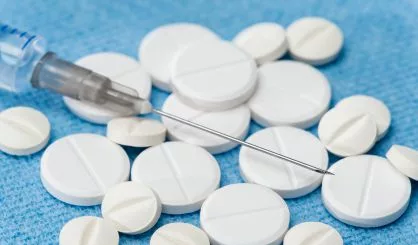Congressman Fred Upton has announced the introduction of his Cures 2.0 legislation. This is the follow up to his 2016 21st Century Cures bill, which increased funding for research and aimed to speed up the approval process for new drugs. This new follow up includes a new department called ARPA-H within the NIH that would research less common illnesses. It also invests in telemedicine. Upton’s office tells us more:
U.S. Reps. Fred Upton (R-MI) and Diana DeGette (D-CO) today introduced their highly anticipated, bipartisan Cures 2.0 legislation that some leading health care organizations are calling a potential “game changer” in how the U.S. conducts biomedical research going forward.
Included in the 173-page bill designed to revolutionize how the U.S. provides care to patients are several provisions aimed at speeding up the delivery of groundbreaking, new – and potentially lifesaving – cures, treatments and innovations to those who need them most.
The legislation would also create an entirely new agency aimed at ending some of the world’s most difficult diseases – such as cancer, diabetes, ALS, Alzheimer’s and more. The so-called Advanced Research Projects Agency for Health, or ARPA-H, would be housed within the National Institutes of Health and tasked with finding new cures and treatments to a slate of illnesses that affect tens of millions of Americans across the country.
“The federal government has shown, time and time again, that when it’s given the resources needed to accomplish the impossible, there’s not much it cannot do,” Upton and DeGette said. “Diseases such as cancer, diabetes, Alzheimer’s and ALS don’t care if you’re a Democrat or Republican. They affect all of us the same. By creating ARPA-H, we will be bringing together some our nation’s greatest minds to help find cures to these devastating diseases. And we will – for the first time – be putting the full weight of the federal government behind the ongoing efforts to end these terrible illnesses as we know them – which is a mission that all of us should be able to get behind.”
In addition to establishing a new advanced research agency for health, the legislation would also authorize the full $6.5 billion the administration has requested to run the agency for the first three years.
Under the terms of the Cures 2.0 legislation, once created, ARPA-H would be run by a relatively small number of program managers who would each be given a high degree of autonomy to choose which high-risk, high-reward projects to pursue.
The new advanced research agency for health would be modeled largely after the Pentagon’s highly successful Defense Advanced Research Projects Agency, or DARPA, which has been responsible for developing some of the most significant technological advancements of our time, including the Internet, GPS and self-driving cars.
Like DARPA, ARPA-H would provide some of the nation’s greatest minds access to the federal government’s virtually limitless resources to make the impossible, possible; and help shape the future of medicine in the U.S. for many years to come.
Previous efforts to apply the DARPA-like model to biomedical research have already proven successful. In fact, it was DARPA that initially funded Moderna’s mRNA technology when other agencies were skeptical of the approach; an investment that would later lead to the rapid development of a highly effective COVID-19 vaccine that’s saved countless lives across the U.S.
Further developing that mRNA technology to possibly prevent cancer is one of the projects the administration says ARPA-H could pursue.
While ARPA-H would be tasked with finding new cures and treatments for some of the world’s most difficult diseases, other provisions in Cures 2.0 would help deliver new cures and treatments to patients sooner – and improve the overall level of care Americans are provided.
Specifically, the legislation would:
Transform how Medicare covers innovative new treatments and technologies to make those new discoveries available to patients sooner.
Increase access to telehealth services for Medicare and Medicaid patients, including those covered under the Children’s Health Insurance Program, known as CHIP, to ensure more Americans are getting the help they need, when they need it.
Provide training and educational programs for at-home caregivers – including family members with no prior health care experience to help them better care for loved ones when they are home.
Require more diversity in clinical trials to ensure any new drugs and treatments approved for use in the U.S. are both safe and effective for a greater – and more representative – portion of the population.
Provide patients more information about the illness they face and the treatment options available to them to make them a more integral part of the decision-making process.
The legislation would also take steps to address the ongoing COVID-19 pandemic, including requiring the Department of Health and Human Services to:
Conduct a nationwide study on the implications of long COVID; and
Develop a nationwide testing and vaccine distribution strategy to be used in future pandemics.
In developing their Cures 2.0 legislation, Upton and DeGette sought to build upon the progress that’s been made since their original 21st Century Cures Act was signed into law.
That legislation, which has widely been hailed as a tremendous success, not only revolutionized how the U.S. researches and develops new cures and treatments, it also included then Vice-President Biden’s Cancer Moonshot Program.
Having worked closely with then Vice-President Biden to get the Cancer Moonshot program included in their 21st Century Cures bill, Upton and DeGette were among the first lawmakers President Biden summoned to meet with him in the Oval Office back in March to discuss his plan for creating a new DARPA-like agency to end cancer as we know it.
A copy of the Cures 2.0 legislation is available here.
A section-by-section summary of the bill is available here.






